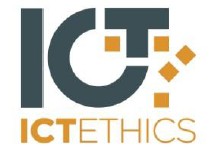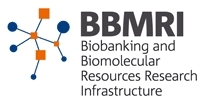EPINET Observation and Reflexivity
- The Responsible Research and Innovation (RRI) approach of the Horizon 2020 Programme
- Policy recommendations
- What actually happens when we get down to the business of bringing people together across disciplines, institutions and national borders in an attempt to achieve interdisciplinarity and integration in assessing new-emerging domains of innovation?
- What are the novelties engendered by interdisciplinarity as a response to the intensifying demands that new-emerging innovations should be integrated with societal affairs?
- What is the impact on innovation futures of different models of providing policy advice? What could be achieved with refigurations of actors, method and approach?
Collaborators:
Lancaster University (Cesagen): Kristrún Gunnarsdóttir, PI & Brian Wynne
Vrije Universiteit Brussels: Niels van Dijk, Mireille Hildebrandt & Serge Gutwirth
This work package was designed to be an agency of observation and reflexivity in reference to the interdisciplinary innovation/technology assessments, i.e., the case studies conducted for EPINET [1]. We attended workshops and meetings and analysed documents produced by the study teams. We also conducted interviews with team members to hear about their expectations and reflections on the experience of working on those assessments. Our focus has centred on the procedural conditions in carrying out this work, conditions we take to be indicative of the kinds of things that can and should be expected in bringing together expertise across disciplines and professions, not to mention, geographical locations. More specifically, we observe these conditions in reference to interdisciplinarity and integration being called upon to improve the culture of innovation and accountability in Europe [2].
See our documentation report on case study progress, van Dijk and Gunnarsdóttir (2014). EPINET Deliverable D2.2, and our article on responsibilizing interdisciplinarity and integration, Gunnarsdóttir and van Dijk (preprint).
The EPINET cases proceeded on the bases of common assumptions observed in the discourses on responsible innovation [3]. Those discourses focus on the turn toward futures and futuring, and what to expect of visions as key considerations in assessments. They focus on the integration of different groups and networks, of coming together to produce reflexive,responsive and anticipatory outcomes for deliberation. They evaluate institutions as part of their assessments, e.g., if structural and/or procedural changes are needed. And, they proceed on the assumption that efforts to govern complex systems should not be deterred by complexity.
This work also took place against a backdrop of recent implementations and a mainstreaming of the Responsible Research and Innovation approach within the H2020 Programme. This approach is evident in directives requiring that research projects funded by the Horizon 2020 programme embed actions on gender, ethics, science education, open access and public engagement. It is evident in calls for institutional change to foster more inclusive and sustainable innovation. For example, the RRI approach is anticipating greater involvement by ALL societal actors throughout the entire research and innovation process: researchers, innovators, policy-makers, businesses, citizens and CSOs. It calls for interdisciplinary solutions and integrated frameworks, conducive to better and more balanced assessments. However, little if any attention is paid to the practical and procedural conditions of realising such goals.
Responsibilising Interdisciplinarity and Integration is the title of the summary of our findings and policy recommendations. We point out that interdisciplinarity and integration are treated as pre-given in mandates to implement and mainstream RRI, and in RRI/RI-type targeting of policy developments that prioritise innovation objectives and funding. Very little is said however, about what to expect of bringing disciplines together and integrating methods and approaches. Interdisciplinarity and integration are responsibilised without adequate attention to procedural conditions or provisions (requirements, supports) to improve upon them. A key learning is how selectively and pragmatically experts learn in approximating other disciplines and there remains a sense of unease with unfamiliar scholarly and methodological terrains. However, a committed engagement in an interdisciplinary exercise in innovation/technology assessment — which is by definition exploratory — can help develop a sustained dialogue with innovators and research leaders, whose visions and products are being evaluated — ideally, with them.
Key policy considerations:
[1]: We refer here to WP3, WP4, WP5 & WP6, plus, the cross-cutting case of Data Protection Impact Assessments (DPIA).
[2]: See https://ec.europa.eu/programmes/horizon2020/en/h2020-section/responsible-research-innovation/
[3]: See Owen, R., Bessant, J. and Heints, M. (eds) (2013. Responsible Innovation. managing the responsible emergence of science and innovation in society. John Wiley & Sons; Also, EPINET Integrated Assessment Framework as a Tool for RRI.













